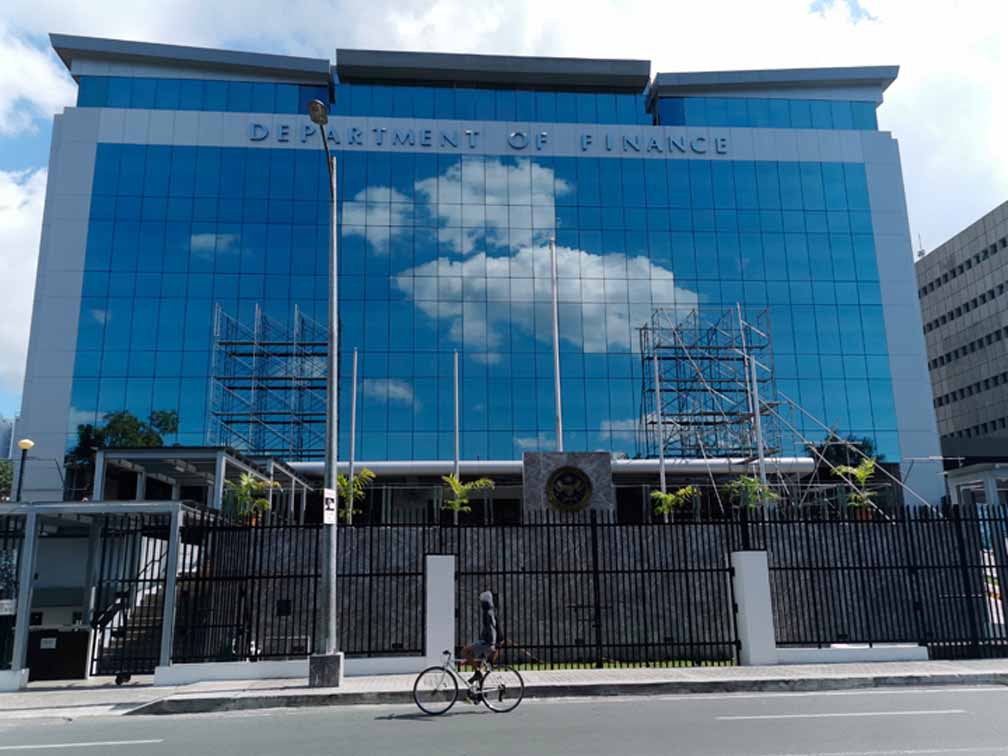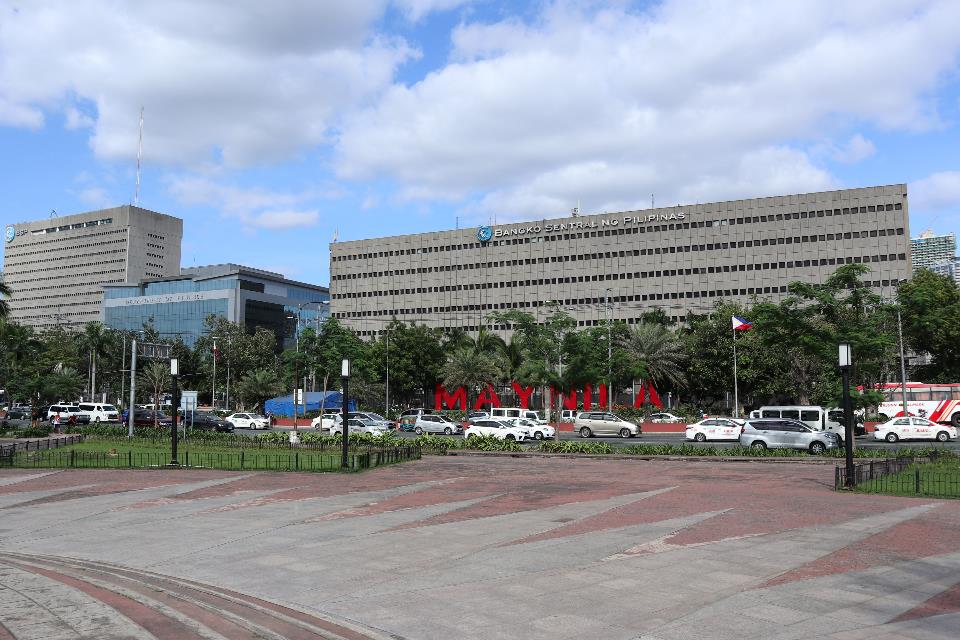Former Environment Secretary Regina Paz L. Lopez on Monday refuted Chamber of Mines of the Philippines (COMP) Chairman Gerard H. Brimo’s critique of her policy pronouncements and order banning the open-pit mining method in the Philippines.
Lopez clarified that the open-pit mining ban applies not to nickel mining, but that of gold, copper, mercury and silver.
“He [Brimo] is confusing the issue. The ban on open-pit mining is not a ban on nickel. It’s not on nickel. It’s a ban on gold, copper, mercury, silver,” she told the BusinessMirror.
Lopez defended her decision to impose the open-pit mining ban during her short stint as secretary of the Department of Environment and Natural Resources (DENR), insisting on the adverse and irreversible impact of the method on the environment, particularly watersheds, and the threat it poses to communities.
She was reacting to a BusinessMirror report wherein Brimo, the president of Nickel Asia Corp., questioned Lopez’s bias against large-scale mining, and the wisdom of imposing the ban on open-pit mining.
During her short stint as DENR chief, Lopez launched a 10-month crackdown and signed closure or suspension orders, affecting more than two dozen large-scale mines. She also canceled 75 mineral production-sharing agreements (MPSAs) and a Financial and/or Technical Assistance Agreement (FTAA) within or near watersheds to protect the country’s water supply.
Days before her rejection by the powerful Commission on Appointments (CA), Lopez signed an order banning the open-pit mining method. The COMP, which represents mining industry’s big players, is seeking a reversal of Lopez’s policies, particularly the ban on open-pit mining.
Brimo said Lopez was making the industry look bad in belittling mining’s contribution to the economy, while blaming miners for the massive environmental damage that cause people in mining communities to suffer. He said open-pit mining is the only way to mine in the Philippines because of the nature of the mineral deposits. He added that the method of mining is dictated by the mineral deposits, which is mostly near the surface.
Brimo lamented that critics of mining are always bringing up the issue of the so-called legacy mines, which were the result of mining activities before the Philippine Mining Act of 1995. The law, he said, has put in place environmental safeguards and rules on mining rehabilitation, as well as provisions requiring mining companies to set aside funds for Social Development Management Program (SDMP), which benefits mining communities through various projects.
Debunking claims that mining is not contributing enough to the economy in terms of share to GDP, Brimo pointed out that mining has spurred economic activities that led to the growth and development of host towns or provinces.
However, Lopez insisted on the irreversible, adverse environmental impact of large-scale mining, particularly by open pit or surface-mining method, which requires massive cutting of trees and excavation covering vast tracts of land to extract minerals.
Aside from threatening the country’s precious freshwater sources and endangering the lives of people in mining communities, these open pits become a perpetual financial liability of the government, she stressed.
“When you get these kinds of minerals, gold, copper, invariably, you hit a water table. You cannot not hit a water table because that is the geophysical makeup of the country. When you put [use] explosives, you hit a water table and that water table is needed by the communities,” she lamented.
According to Lopez, in open-pit mining, mining companies eventually leave behind a huge hole from which the minerals were extracted. The “inverted cones”, or the shape of the open-pit mines, accumulate toxic water over the years, posing threats to the
communities below.
“All these mines, the inverted cones, they will be there forever. Who will take care of them? Will the mining companies take care of them? Will they do it forever?” she stressed.
Lopez also brushed aside Brimo’s pronouncement that members of COMP will adopt Canada’s mining model, dubbed “Towards Sustainable Mining”, to improve mining operations.
“We are not Canada. In Canada you don’t hit a water table. Here, you hit a water table. In Costa Rica they banned open-pit mining. In Venezuela they do not want to get the gold because they want to keep the mountains,” she said. The former DENR secretary also insisted that mining has not improved the lives of the people in host communities, citing the case of the high poverty incidence in Dinagat Islands and the Caraga region.
She added that, while she was impressed by Rio Tuba’s mining operation, she said it has its flaws. She said a report from the Department of Interior and Local Government (DILG) indicated that there was zero growth in the area despite mining. Lopez said, instead of mining, people should explore the benefits of protecting and conserving the country’s rich biodiversity.
She said mining benefits only mining companies by raking huge profits while denying communities access to important economic resources like land and water in the process.
Exploring the economic benefits of biodiversity, she said, is more profitable and a more worthy endeavor Lopez said in Hinatuan, mining operation caused the mountain to shrink by two-thirds.
“Yes, the Philippines is rich in mineral deposits. But it is also beautiful,” she said. She also took a jab at COMP’s plan to copy Canada’s mining model. “Canada is not the Philippines. In Canada mining there happens in deserts. In the Philippines, there are people [who will be affected],” she said.
Meanwhile, Lopez wrote an open letter to the Mining Industry Coordinating Council (MICC) reiterating the reasons for the ban.
“The open pits are going to be there forever. After mining, the open pits need to be maintained forever. If the open pits are not detoxified and neutralized regularly, the acid water and toxic metals they are generating will continue to pollute our rivers, our streams, and adversely affect the lives of the communities living there,” she said.
Because the miners will not stay there forever, she said the government will be left to shoulder the maintenance works, hence, they become a continuing financial liability to the government. She also reiterated that the existence of toxic open pits kills the economic potential of the area, the biodiversity and the possibilities of ecotourism.
“There are at least 14 open-pit mines in the Philippines—10 of them are abandoned or suspended, while five are filled with toxic acid water and/or heavy metals,” she said.
“The existence of the open pits violates the constitutional rights of our people to a clean and healthy environment. Mining is not a right. Mining is a privilege granted to operators under certain conditions. Our right to clean air and clean water is not only constitutional, but it is also a God-given right,” she said.
Lopez then expressed concern over MICC Cochairman lawyer Bayani H. Agabin, who worked as a lawyer for mining companies, while Cochairman Secretary Carlos G. Dominguez III’s family has interests in mining. “He himself was a president of a mining firm.
“Just like what happened to me in the Commission on Appointments, business interests may navigate to win the day—instead of the well-being of our people—which is as it should be,” she warned.
Lopez enumerated a number of abandoned open-pit mines, including that of the Maricalum Mining Corp. and CDCP Mining Corp., both in Negros Oriental; Manila Mining Corp. in Surigao del Norte; Dizon Copper-Silver Mines Inc. in Zambales; Palawan Quicksilver Mine Inc. in Palawan; Marinduque Mining and Industrial Corp. in Samar; Marcopper Mining Corp. in Marinduque; Acoje Mining Co. Inc. in Pangasinan; Benguet Corp. in Benguet; Consolidated Mines Inc., also in Marinduque.
All the said open pits, she said, are still there, “eternally” posing grave threats to people and the environment.
































4 comments
Did Brimo specifically mention nickel mining as being affected by the ban, or did Lopez just assume that he did because he is also head of a nickel mining company.? The way I see it, Brimo was stating how the ban would affect large-scale mining in general. Lopez seems to be putting words into Brimo’s mouth. As long as these miners obey the Mining Act provisions regarding rehabilitation of retired open-pit mines, there will be no adverse effects.
Incidentally, there is no mercury mining in this country. However many small-scale mines use mercury for gold extraction, yet for the longest time now government has been ignoring violations of small-scale mining to go after more headlines-worthy prey like the big miners.
Thank you for your comment. Indeed, there was no mention of nickel-mining being affected by the open-pit mining ban in my interview with Mr. Gerard H. Brimo. I also agree with you on your observation that the government has been ignoring violations of small-scale mining. Many of these small-scale miners are actually big miners, too.
Open-pit mine is possible, everyone just need to follow the law. Be responsible enough. Mrs Lopez is on it’s feet again getting to this mining thingy.
In general, concerning the protection of environment, Ms. Lopez’s statements are true. Due to Phils topography and climate, doing responsible mining is challenging and costly. If the government will require all open pit mines to be rehabilitated by the operators to its almost original pristine condition, mining will become unprofitable but failing to do so will be detrimental to succeeding generations.